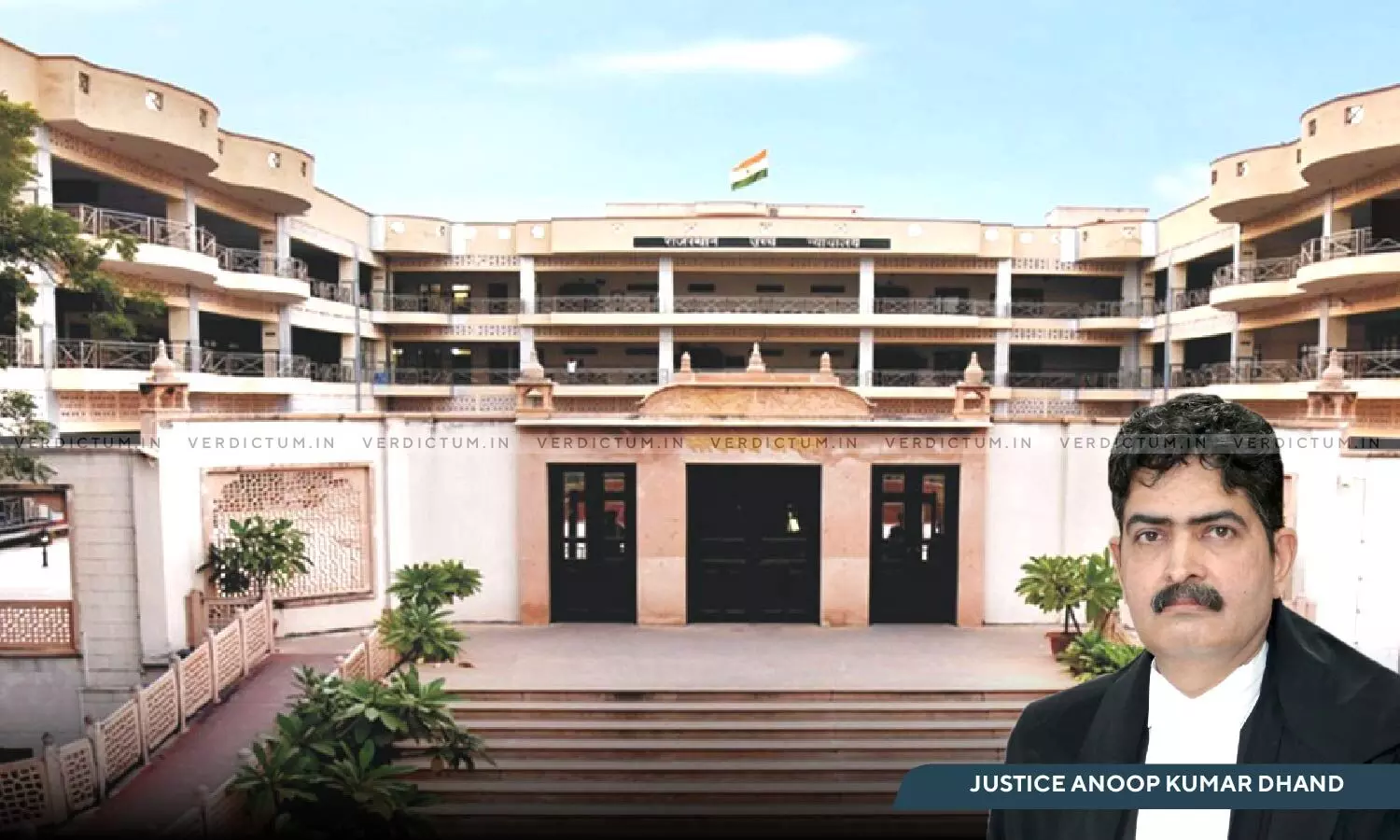
Justice Anoop Kumar Dhand, Rajasthan High Court
Long Way To Go To Ensure That Every Girl In India Can Receive Quality Education; Govt To See That Every Child Completes Elementary Education: Rajasthan High Court
 |
|The matter before the Rajasthan High Court came up for hearing on three letters written by the Superintendent, Government Balika Grah, Gandhinagar Jaipur, requesting the Court to permit the victim child to study in Class-III.
While passing a direction to ensure the admission of a 11-year-old rape victim in a Government School, the Rajasthan High Court has highlighted the fact that the Indian government and non-governmental organizations are making efforts to increase access to education for girls but there is still a long way to go to ensure that every girl in India can receive a quality education.
The matter before the Rajasthan High Court came up for hearing on three letters written by the Superintendent, Government Balika Grah, Gandhinagar Jaipur, requesting the Court to permit the victim child to study in Class-III.
The Single Bench of Justice Anoop Kumar Dhand said,“No child shall be liable to pay fees and charges that prevents him/her for pursuing elementary education. The Government and Local Authorities should ensure that every child completes his/her elementary education.”
“The Indian government and non-governmental organizations are making efforts to increase access to education for girls, and progress has been made in recent years. However, there is still a long way to go to ensure that every girl in India can receive a quality education and realize her full potential”, the Bench asserted.
Factual Background
In its earlier order, the High Court deemed it just and proper to pass the order to admit the victim child in Balika Grah till attaining the age of majority after looking into the family condition of the petitioner-victim that there was no one to take care of her. The Superintendent, Balika Grah, Jaipur and other staff posted there were directed to take proper care of the petitioner by providing her all kinds of help like nutritious food, medical care and all other assistance required.
After passing the aforesaid order, the victim gave birth to a child, and the same had been handed over to Central Adoption Resource Authority (CARA) for adoption. It was brought to the Court’s notice that now the victim wants to study to make a career in future. At present, the age of the victim is around 11 years.
Reasoning
The Bench stated that the Right to Education is the fundamental right of every child. The Constitution (Eighty-sixth Amendment) Act, 2002, inserted Article 21-A in the Constitution of India to provide free and compulsory education of all children in the age group of six to fourteen years as a Fundamental Right in such a manner as the State may, by law, determine.
Highlighting the fact that title of the RTE Act incorporates the words 'free and compulsory’, the Bench explained that 'Free education' means that no child, other than a child who has been admitted by his or her parents to a school which is not supported by the appropriate Government, shall be liable to pay any kind of fee or charges or expenses which may prevent him or her from pursuing and completing elementary education. 'Compulsory education' casts an obligation on the appropriate Government and local authorities to provide and ensure admission, attendance and completion of elementary education by all children in the 6-14 age group. “With this, India has moved forward to a rights based framework that casts a legal obligation on the Central and State Governments to implement this fundamental child right as enshrined in the Article 21A of the Constitution, in accordance with the provisions of the RTE Act”, it said.
Considering how girl education in India has been a topic of great importance for many years, the Bench mentioned, “Despite the benefits of girl education, many challenges remain in India. Girls are often expected to prioritize household chores and marriage over education, and many families cannot afford to send their daughters to school. Additionally, there is a significant gender gap in education, with girls lagging behind boys in enrollment, completion rates, and literacy.”
Noticing the fact that the petitioner was interested in studies and her wish to undergo studies, the Bench directed, “...this Court deems it just and proper to grant permission to the Superintendent, Government Balika Grah, Department of Child Rights, Gandhinagar, Jaipur to admit the victim in any Government School situated nearby the vicinity of Balika Grah and bear expenses of her studies and provide her necessary books and study material to continue her studies till attaining the age of majority.”
The Bench further asked the Superintendent, Balika Grah, Gandhinagar, Jaipur, the Superintendent of Police (Rural), District Jaipur and the Child Protection Officer to submit the report alongwith documentary proof of the admission of the victim child in the School. “They are further directed to visit the victim child to ensure that her studies continue to the age of her attaining majority without any hurdle and obstructions”, it concluded.
Cause Title: Victim v. State Of Rajasthan & Ors. (Case No.: S.B. Civil Writ Petition No. 821/2024)